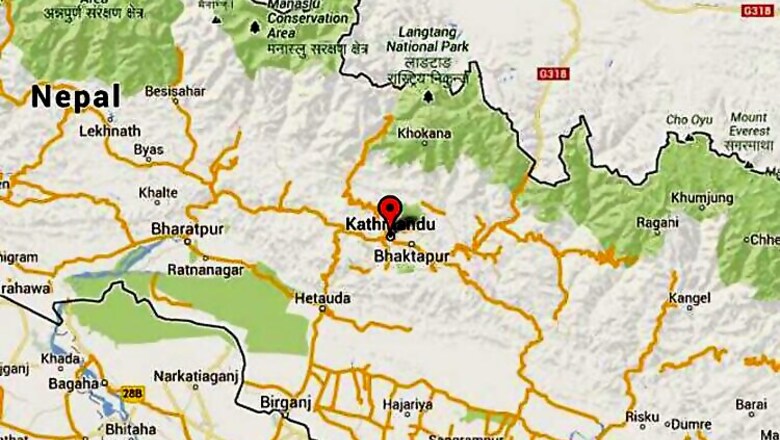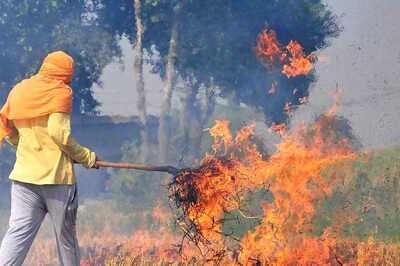
views
Kathmandu: Nepal police fired into a crowd of demonstrators on Monday, killing one person as fresh protests erupted in the country's southern plains over a new draft constitution.
The incident in Parsa district, 95 kilometres (60 miles) south of Kathmandu, came a week after violent clashes in southwestern Nepal saw eight police and an 18-month-old boy killed, prompting the government to deploy troops and announce an indefinite curfew.
In the latest round of clashes, hundreds of demonstrators belonging to the Madhesi ethnic minority attacked government offices and set fire to a police station, an official said.
"Security forces had to open fire to control the crowd," said national police spokesman Kamal Singh Bam.
"One person died in hospital while undergoing treatment for bullet injuries after the police fired... a few others were wounded," Bam said.
Anger has been building for weeks in southern Nepal after lawmakers struck a breakthrough deal on a new constitution, spurred by April's devastating earthquake.
The constitution was meant to cement peace after a 10-year insurgency led by former Maoist rebels and draw a line under centuries of inequality.
But plans laid out in the draft charter to divide the Himalayan nation into seven provinces have sparked fury among historically marginalised communities including the Madhesis, who say the new borders will limit their political representation.
The growing discord prompted lawmakers from a regional party representing the Madhesis to walk out of the constituent assembly this month and throw their weight behind the protestors.
Prior to Monday's killing, police have shot dead four people protesting in other districts against the constitution, in separate incidents over the course of the month.
Amnesty International has called on Nepali authorities "to ensure that all voices are heard including those of groups who are marginalised in the decision-making process".
"Security forces, who have already used excessive force, must avoid and prevent further bloodshed," the rights watchdog said in a statement.
Lawmakers began working on a new national constitution in 2008, two years after the end of the Maoist insurgency that left an estimated 16,000 people dead and brought down the 240-year-old Hindu monarchy.
But negotiations faltered over the issue of internal borders and the resulting uncertainty left Nepal -- one of the world's poorest countries -- in political limbo.















Comments
0 comment